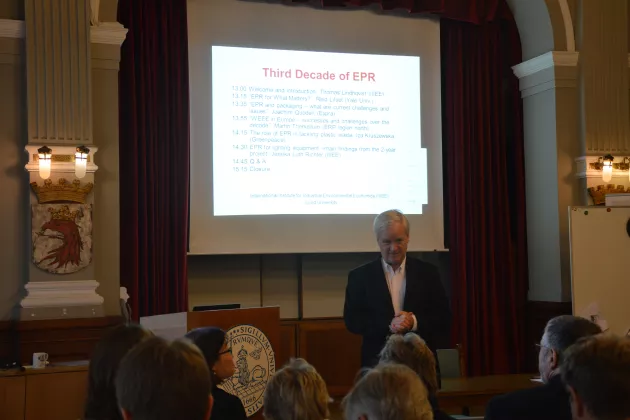Extended Producer Responsibility (EPR) has been increasingly discussed as a concept to solve the current waste problems for specific products. Thomas Lindhqvist first described it in 1990 as “an environmental protection strategy to reach an environmental objective of a decreased total environmental impact of a product, by making the manufacturer of the product responsible for the entire life-cycle of the product and especially for the take-back, recycling, and final disposal”.
Proponents of EPR argue that by assigning the organizational responsibility for waste management to a producer, EPR could reduce the financial burden of municipalities and support the internalization of commonly externalized costs associated with waste. As such, EPR might also constitute a transformative framework for a shared responsibility for waste handling between producers and consumers, as the latter might contribute to a sustainable waste management through increased purchasing costs.
The purpose of this public seminar was to take a look back to better understand the genesis of the EPR concept and its implementation. The session was titled “Promoting Extended Producer Responsibility (EPR) in international law for a sustainability transformation towards a circular economy” and was arranged by the International Academy Transformation for Environment and Sustainability (TES Academy) organised by the German Environmental Agency (Umweltbundesamt – UBA). The sessionwas virtual on 16th of January 2024.
More about the TES series: Extended Producer Responsibility in international law
The background concept note for the EPR discussion can be accessed here.





